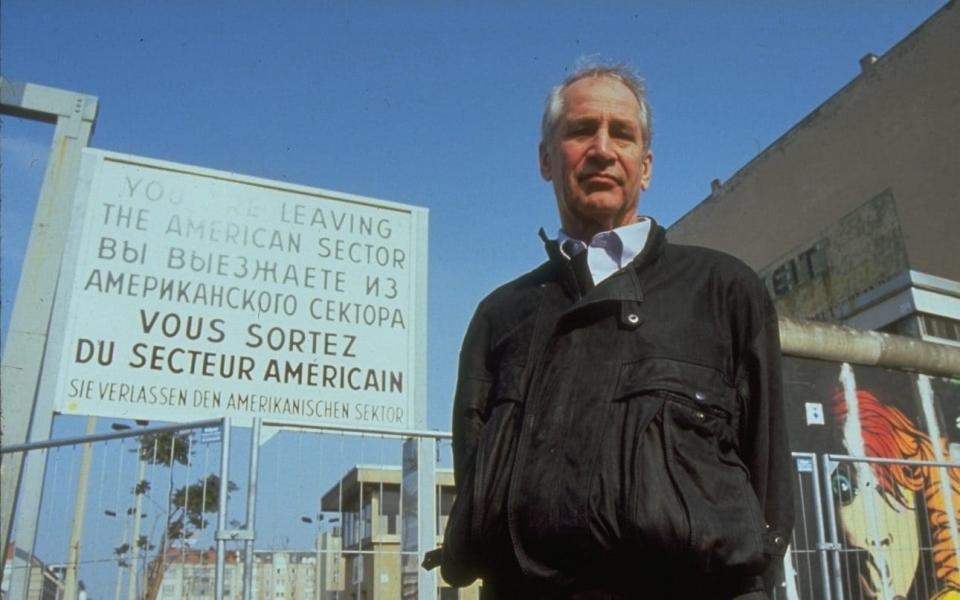It began with a flirty message: “Long time no speak! Miss you in Westminster”. Then, after claiming to have met the recipient at a recent event, the mystery correspondent, who called himself “Charlie”, got down to brass tacks: “I’m single again so making the most of the gays in Westminster.” After some further banter, “Charlie” sent an explicit photo.
It sounds like an exchange that might take place on a dating app. But this message and several others, containing similar wording, were sent on WhatsApp to at least 12 men, including MPs, working in and around Parliament between October 2023 and February this year. If the recipient was heterosexual, then the sender called themselves “Charlotte” or “Abi”.
Yesterday, the Commons Speaker, Sir Lindsay Hoyle, held talks with Parliamentary staff, after experts told the Politico website that the messages were almost certainly part of a “spear phishing” attack – a highly personalised “phishing” exercise intended to gather compromising information on a victim – possibly undertaken on behalf of a foreign state.
The platform may be modern, but the honeytrap has a long and colourful history. Here, we recall some of the best known episodes from which modern-day spies may continue to draw inspiration…
Mata Hari

Mata Hari is to the honeytrap what Hoover is to vacuum cleaning. A Dutch dancer, real name Margaretha Geertruida Zelle, she made a reputation for herself in bohemian Paris before the First World War.
Then, after performing for the eldest son of Kaiser Wilhelm II, she was recruited by the French in 1916 to seduce the Crown Prince and obtain military secrets (which would, in fact, have been of no use as he had no involvement in the war).
She met a German operative in Madrid in an attempt to set up a meeting with Wilhelm Jr, but instead offered to share French secrets with the Germans. The French then intercepted communications that allegedly confirmed her treachery.
What Mata Hari’s motivation was and the true intentions of the French and Germans remain unclear – it is not certain whether she was a double or even triple agent or merely an innocent scapegoat – but she was executed for her troubles by the French in October 1917.
John Profumo and Christine Keeler


The mother of all British political scandals. John Profumo, the Secretary of State for War in 1963, got caught in a convoluted tangle as the lover of Christine Keeler, who also happened to be involved with Soviet naval attache and man-about-town Yevgeny Ivanov.
The key figures all met at parties organised by society osteopath Stephen Ward, who took his own life during his trial for “living off the earnings of prostitution and of procuring”.
Profumo, having initially denied his affair with Keeler, was hopelessly compromised and resigned. Ivanov always maintained it was implausible as espionage, claiming later that Keeler would never have been able to obtain sensitive information for the Russians via pillow talk: “Oh, by the way, darling, when are the cruise missiles going to arrive in Germany?”


In 2019, documents revealed the venerable Labour minister Barbara Castle had been the subject of an attempted honeytrap by a Czechoslovakian agent, the Italian Renato Proni, while Castle was an up-and-coming figure in Clement Attlee’s party in the Fifties.
The intelligence papers from the communist secret police, Státní Bezpečnost, dating from 1953 claim Proni thought he could seduce Castle, though there was no suggestion he ever succeeded.
Proni and Castle discussed political theory and he was known in the party to be her friend, sometimes driving her to meetings and writing documents for her.
The report read: “Based on the testimony of Andrej [Proni’s codename] she confided in him with the intention of getting a leading position in the Foreign Office in case of victory of the Labour party.”They also record Castle calling Proni “her gentle Italian flower”.
Mordechai Vanunu and Cheryl Ben Tov


In 1986, Mossad took a dim view of Israeli technician Mordechai Vanunu, who offered the British press the story – and images to prove it – that Israel had developed nuclear weapons at the secretive Dimona plant in the Negev desert (the Israeli nuclear policy was and remains one of “deliberate ambiguity”).
While in hiding, Vanunu slipped out into central London for a day of sightseeing, during which he was befriended by a woman with whom he planned a romantic trip to Rome.
The honey trap was set because Vanunu had been identified as “lonely” by Mossad psychologists.
Vananu’s new companion was Cheryl “Cindy” Ben Tov, who took him to an apartment in Rome where he was overpowered and drugged by three waiting Mossad agents.
Vanuna promptly reappeared in Israel, where he stood trial for treason (it was less diplomatically sensitive to arrest him in Italy than in the UK).
Vanunu was released from prison in 2004.
Markus Wolf’s Romeo Spies


The East German spymaster Markus Wolf set up a department of the Stasi dedicated to his network of “Romeo Spies” on the basis that the Second World War had left a shortage of young men in the fledgling West Germany.
Selecting the best-looking operatives, Wolf sent them west with the aim of seducing politically and economically powerful – often unmarried – women in West German society. Some of these women were turned to work on behalf of the GDR, including as secretaries of senior officials, collecting confidential information from government, industry and even within Nato.
By the Eighties, the honeytraps became less effective, with West German officers trained to recognise the giveaway unfashionable haircuts and clothes of the East German arrivals.
But Wolf wrote: “As long as there is espionage, there will be Romeos seducing unsuspecting [targets] with access to secrets.”
Source Agencies



